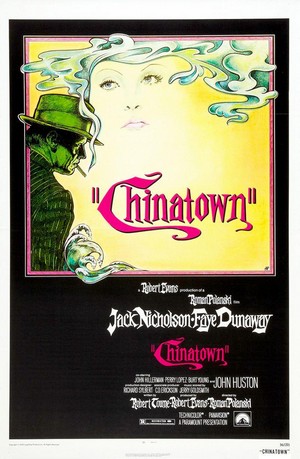
Chinatown (1974)

Raiting: ![]() 8,1 /10
8,1 /10
Genre: Mystery
Director: Roman Polanski
Stars: Jack Nicholson, Faye Dunaway and John Hillerman
Country: United States
Release date: 20 June 1974
Length: 131 minutes


Raiting: ![]() 8,1 /10
8,1 /10
Genre: Mystery
Director: Roman Polanski
Stars: Jack Nicholson, Faye Dunaway and John Hillerman
Country: United States
Release date: 20 June 1974
Length: 131 minutes